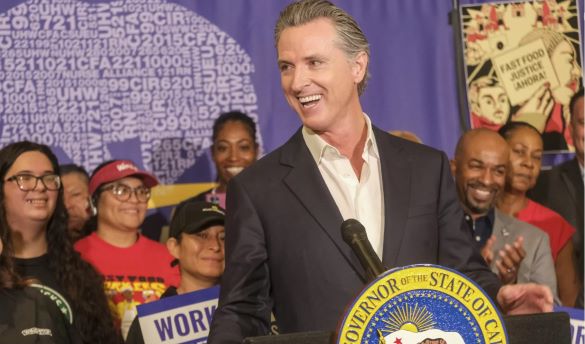
Last month, Gavin Newsom signed into law a California bill that will raise the minimum wage for fast food workers to $20 an hour starting in 2024. While the law has been hailed as a victory for low-wage Californians, the reality is much more complicated.
When states force industries to massively increase wages, the result isn't that the same number of employees start making more money. Instead, enacting a climbing minimum wage often results in higher unemployment and higher prices.
The law, originally Assembly Bill 1228 was passed as a compromise measure. Last September, Newsom signed the Fast Food Accountability and Standards (FAST) Recovery Act, which would have increased the minimum wage for fast workers to up to $22 an hour. In response, a campaign to get a measure to repeal the law on the 2024 ballot quickly sprang up. Ultimately, restaurant groups gathered enough signatures for the referendum.
Rather than face a ballot referendum over the law, Assembly Bill 1228 was crafted to repeal the FAST Act and replace it with a less extreme alternative following negotiations with restaurant and labor groups. The new law applies to employees working for fast food restaurants with more than 60 locations nationally, with an exception for businesses that bake their own bread.
Click to continue reading